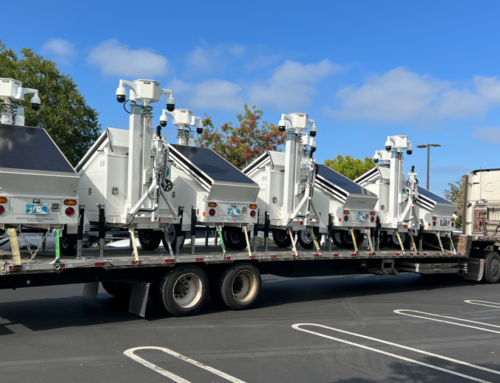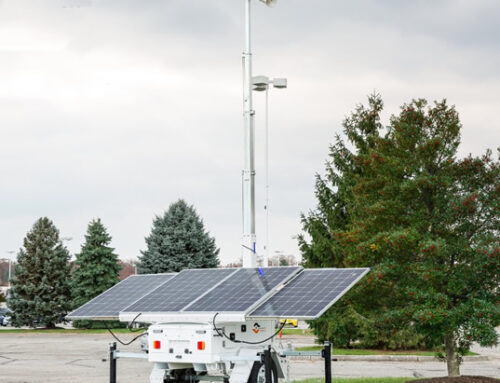What is Workplace Safety?
Workplace safety, also known as occupational safety and health, concerns the welfare and well-being of people at work. It implies the provision of a safe working environment with procedures to ensure their protection. It involves, among others, the installation of a video monitoring system to avoid accidents despite the presence of occupational hazards.
In 2019, the U.S. Bureau of Labor Statistics reported over 5,000 fatal work-related accidents in the country. According to the bureau, this means that a worker died every 99 minutes from an occupational injury that year. At its core, workplace safety is the idea that employers must control recognized hazards in the worksite to guarantee the employees’ welfare. You can start by setting up a CCTV camera system.
9 Ways a CCTV Camera System Can Improve Workplace Safety
Here are ways a strategically placed CCTV camera system can boost the safety of workers while at work.
1. Identifies potential hazards
A video surveillance system can help monitor your work processes and machinery. You can detect changes in conditions and get alerts for potential problems.
For example, in areas where multiple personnel are working, each may execute the same task differently. In this case, they can expose themselves to a unique set of risks. Reviewing CCTV footage can help you identify these hazards. Then, you can put systems in place to manage and strengthen workplace safety.
2. Protects employees and the organization
CCTV cameras can record instances of employee abuse or harassment. It can also monitor visitors who come into the building, helping keep track of any suspicious activity. Additionally, cameras installed within the perimeter can document trespassers who enter to vandalize or steal company property.
Ultimately, the cameras can act as a deterrent against crime. When criminals see a CCTV system or employees know cameras are in place, they would think twice before carrying out any illegal activity. This helps protect the company from possible criminal activities or offenses that can compromise workplace safety and security.
3. Ensures compliance
Video surveillance provides a way to ensure your employees follow procedures and adhere to company policies. This enables you to better control workplace safety by taking action on critical situations, whether it be a change in the processes or equipment replacement.
For instance, if your business handles hazardous machinery, installing an integrated CCTV system with access control technology can help verify that the equipment is only being operated by authorized staff. This enhances employee compliance, which contributes to workplace safety.
4. Aids in investigations
The use of video surveillance cameras can provide vital information for accident investigations. If an incident occurs, the footage can be reviewed to provide insight into what transpired during the event. The recorded images and videos can then help you determine what can be changed to prevent the same thing from happening again.
Advanced network cameras with video analytics can analyze video feeds to a degree impossible for human eyes to process. The software is programmed to look at an entire image and break it down into sections pixel by pixel, allowing for even the slightest changes in the footage to be picked up and analyzed.
This camera technology makes it possible to develop accurate alternatives to existing processes to boost productivity and ensure workplace safety.
5. Helps prevent accidents
Strategically placed cameras are also useful in the prevention and investigation of work-related injuries. For instance, if a particular piece of equipment has the potential to cause an accident, a CCTV system can help determine if there is a mechanical issue that needs to be fixed.
The footage can also aid in evaluating if an incident has something to do with operator error. If such is the case, the video will serve as a confirmation that safety training is necessary. Essentially, this will help reduce the risks of occupational hazards.
6. Provides insight on safety training
Seeing an actual video of an event gone wrong can be more effective than reading a manual on equipment safety. For example, if an accident happened, the footage could help pinpoint its cause. It can serve as a reference when developing interventions to ensure the same incident won’t happen again.
The video can also help provide insights on how to train employees to ensure workplace safety. Accidents could happen due to the operator not following procedures or not having been adequately trained. This information can help you in coming up with a well-designed training program.
7. Promotes positive employee behavior
When employees see that there are cameras on the premises, they tend to behave appropriately. In this sense, CCTV cameras provide the proper nudge that prompts positive workplace behavior. The workers will become aware that if they engage in illicit activities, they cannot talk their way out of video evidence proving such acts.
Workplace culture is the lifeblood of an organization, and adverse employee behavior can be detrimental to workplace safety and the company’s long-term success. Strategically installed CCTV cameras help protect such culture by ensuring workers exhibit appropriate conduct.
8. Reduced insurance costs help reinforce safety and security
Although the regulations vary by provider, many insurance companies offer reduced premiums to businesses that have an effective burglar alarm in place, with discounts usually running between 5% to 20%. If your property is equipped with a CCTV system, you’ll be able to file fewer claims, which could mean lower insurance costs for you.
Reduced premiums encourage businesses to install an alarm system on site. But apart from insurance cost savings, CCTV plays a more crucial role by upholding safety and security within your perimeters.
9. Allows you to keep up with the standard protocols
When it comes to liability claims, you can save yourself a lot of trouble by addressing disputes with customers or employees using video footage. If someone fakes an accident or reports a harassment incident, you can use video footage to counter their allegation. This provides an opportunity for you to make sure your processes promote workplace safety by ensuring they keep up with the industry’s standard protocols.




